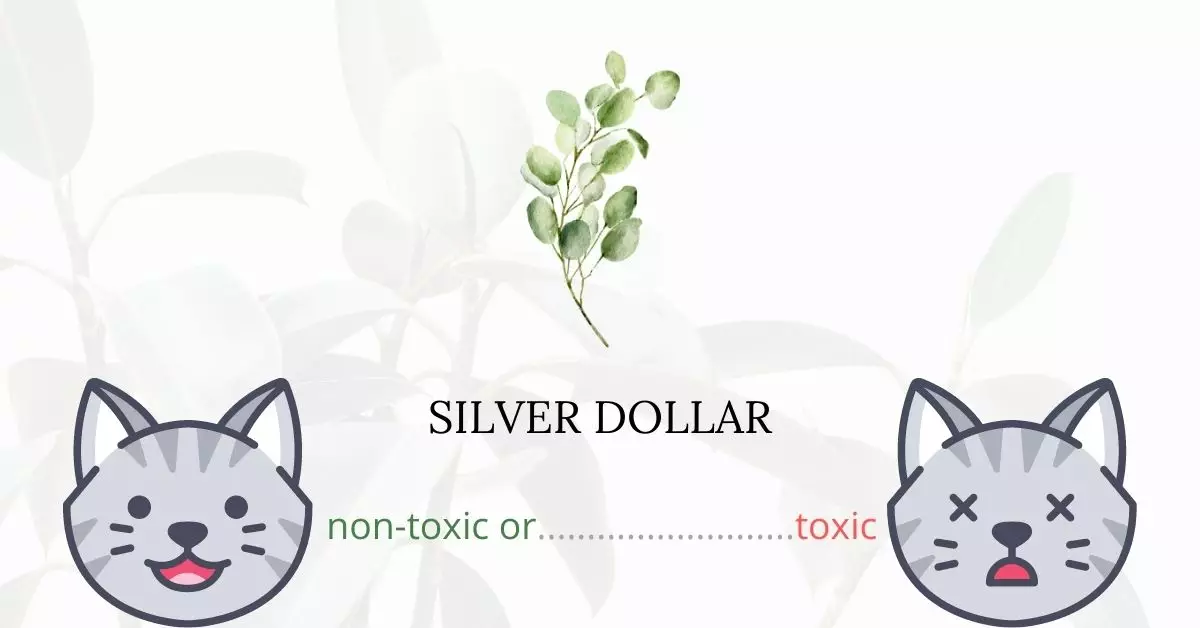The Silver Dollar plant is indeed toxic to cats, with all components of the plant including the stem, leaves, petals, roots, and seeds, posing significant risks. The exact nature of the toxins remains somewhat elusive, but the risk to felines is clear and should not be underestimated. This plant, which can be cultivated both indoors and outdoors, is a popular choice as a houseplant, elevating the risk of feline exposure and potential toxic reactions.
This article has been crafted in collaboration with a group of seasoned Doctors of Veterinary Medicine (DVMs), ensuring the information provided is accurate, relevant, and up to date, allowing readers to make informed decisions about their pets’ safety and wellbeing. Our veterinary contributors provide invaluable insights into the potential risks associated with various plants, such as the Silver Dollar, and their impacts on cats, deepening our understanding of these hazards. To substantiate the information further, extensive research was conducted utilizing high-authority resources like ASPCA and PetMD, enabling a comprehensive view of each plant’s risks and ensuring the reliability of the information provided herein.
Clinical Signs of Silver Dollar Poisoning in Cats
The Silver Dollar plant, while visually appealing, poses a threat to our feline friends. Though the specific toxic compounds within the Silver Dollar remain unidentified, ingestion or even contact can lead to a series of adverse reactions in cats. Recognizing these symptoms early is essential, as timely intervention can make a significant difference in outcomes. Below are some clinical signs to be aware of, along with explanations for their occurrences:
- Depression: Cats affected by the Silver Dollar plant may exhibit signs of lethargy and reduced interest in activities. The toxins in the plant can interfere with the normal functioning of the cat’s nervous system, leading to a subdued or depressed demeanor.
- Nausea: If a cat has ingested or come in close contact with the Silver Dollar plant, it might display signs of nausea. The toxic elements present can irritate the stomach lining and upset the gastrointestinal tract, leading the cat to appear uneasy or restless.
- Retching: Retching or gagging is a sign that the cat’s body is attempting to expel or cope with the toxins. The plant’s harmful compounds can trigger the cat’s natural defensive reflex to try and rid its system of the offending substance.
- Vomiting: This is one of the more evident signs of poisoning. When a cat consumes parts of the Silver Dollar plant, the toxins can severely irritate the stomach, leading to vomiting. Vomiting is also a bodily response aimed at eliminating the ingested harmful substance from the system.
If you observe any of these symptoms in your cat and suspect contact or ingestion of the Silver Dollar plant, it’s crucial to consult with a veterinarian immediately. Early detection and intervention can lead to a better prognosis for your furry companion.
First Aid and Treatment of Silver Dollar Poisoning in Cats
A number of diagnostic tests may be performed by the veterinarian to establish that your cat is indeed suffering from silver dollar plant poisoning and not a more serious underlying issue.
The majority of the treatment will be symptomatic. The veterinarian will most likely start with an emetic medicine to induce vomiting in the cat. Activated charcoal will most likely be provided. This will bond with poisonous substances and inhibit the body from absorbing further plant compounds. Treatment for the feline may involve intravenous fluid therapy to relieve dehydration caused by severe vomiting.
Other medications and treatment may also be done by the veterinarian as needed in the cat’s condition.
Recovery from Silver Dollar Poisoning in Cats
The outcome for Silver Dollar poisoning in cats is uncertain and highly dependent on the amount of plant material ingested. Like other plant poisoning instances, the sooner the feline is taken to the veterinary facility and treated, the higher his or her chances of full recovery.
Prevention of Silver Dollar Poisoning in Cats
Remove any silver dollar plant from your house. Avoid growing it to prevent poisoning in your cats. Limiting your cat’s outdoor access will also lessen the possibility of getting in contact with toxic plants in your surroundings.
If you love plants but have cats at home, check out these lists:





